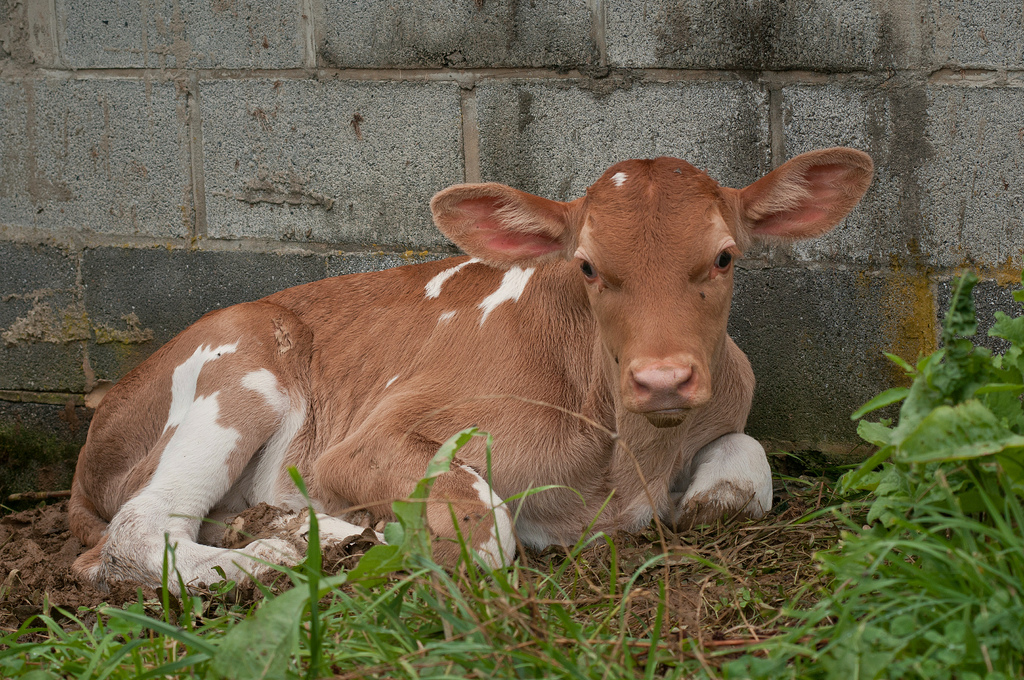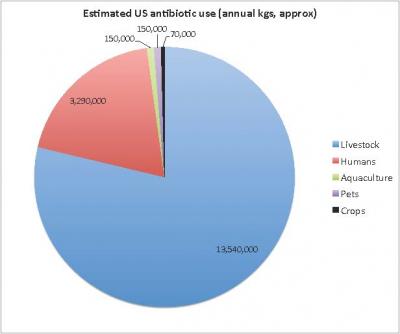Researcher says extensive use of antibiotics in agriculture creating public health crisis

University of Calgary's Aidan Hollis advocates user fees on non-human antibiotics use
Citing an overabundance in the use of antibiotics by the agriculture and aquaculture industries that poses a threat to public health, economics professor Aidan Hollis has proposed a solution in the form of user fees on the non-human use of antibiotics.
In a newly released paper published in the New England Journal of Medicine, Hollis and co-author Ziana Ahmed state that in the United States 80 per cent of the antibiotics in the country are consumed in agriculture and aquaculture for the purpose of increasing food production.
This flood of antibiotics released into the environment – sprayed on fruit trees and fed to the likes of livestock, poultry and salmon, among other uses – has led bacteria to evolve, Hollis writes. Mounting evidence cited in the journal shows resistant pathogens are emerging in the wake of this veritable flood of antibiotics – resulting in an increase in bacteria that is immune to available treatments.
If the problem is left unchecked, this will create a health crisis on a global scale, Hollis says.

This image shows estimated antibiotic use in the United States. Data are shown as approximate numbers of kilograms of antibiotics used per year. Graphic by The New England Journal of Medicine. Image credit: The New England Journal of Medicine
Hollis suggest that the predicament could be greatly alleviated by imposing a user fee on the non-human uses of antibiotics, similar to the way in which logging companies pay stumpage fees and oil companies pay royalties.
"Modern medicine relies on antibiotics to kill off bacterial infections," explains Hollis. "This is incredibly important. Without effective antibiotics, any surgery – even minor ones – will become extremely risky. Cancer therapies, similarly, are dependent on the availability of effective antimicrobials. Ordinary infections will kill otherwise healthy people."
Bacteria that can effectively resist antibiotics will thrive, Hollis adds, reproducing rapidly and spreading in various ways.
"It's not just the food we eat," he says. "Bacteria is spread in the environment; it might wind up on a doorknob. You walk away with the bacteria on you and you share it with the next person you come into contact with. If you become infected with resistant bacteria, antibiotics won't provide any relief."
While the vast majority of antibiotic use has gone towards increasing productivity in agriculture, Hollis asserts that most of these applications are of "low value."
"It's about increasing the efficiency of food so you can reduce the amount of grain you feed the cattle," says Hollis. "It's about giving antibiotics to baby chicks because it reduces the likelihood that they're going to get sick when you cram them together in unsanitary conditions.
"These methods are obviously profitable to the farmers, but that doesn't mean it's generating a huge benefit. In fact, the profitability is usually quite marginal.
"The real value of antibiotics is saving people from dying. Everything else is trivial."
While banning the use of antibiotics in food production is challenging, establishing a user fee makes good sense, according to Hollis.
Such a practice would deter the low-value use of antibiotics, with higher costs encouraging farmers to improve their animal management methods and to adopt better substitutes for the drugs, such as vaccinations.
Hollis also suggests that an international treaty could ideally be imposed. "Resistant bacteria do not respect national borders," he says. He adds that such a treaty might have a fair chance of attaining international compliance, as governments tend to be motivated by revenue collection.
Hollis notes that in the U.S., a move has been made to control the non-human use of antibiotics, with the FDA recently seeking voluntary limits on the use of antibiotics for animal growth promotion on farms.
He asks: "Is the Canadian government going to take any action to control the use of antibiotics for food production purposes? Health Canada is trying to monitor the use of antibiotics, but has virtually no control over use."
Source: University of Calgary
Featured image: 20130712-AMS-LSC-0550.jpg by http://www.flickr.com/photos/41284017@N08/9303005780

Thank you,Hugh, for pointing this out. If they're going to point out one fault, then they should point out them all. After all,it's all one battle, the fight for truth.
"Researcher says extensive use of antibiotics in agriculture creating public health crisis."
It's not just antibiotics that's creating a health hazard to humans. Livestock are also given hormones and/or steroids to fatten them up faster. So, the next time you're out in public, look around and see how many overweight people there are (children too). All those chemicals must go somewhere when ingested.
Let's not forget about the poisonous, genetically modified grain that is being fed to livestock (this is another story in itself).